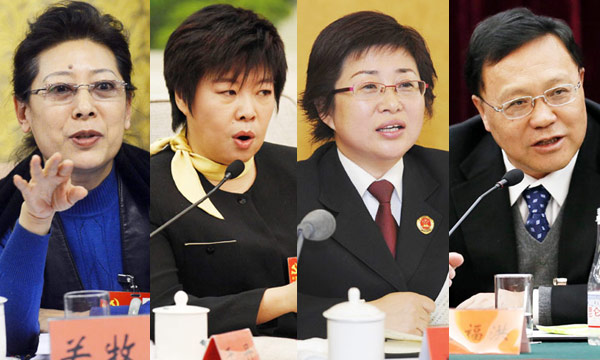Party place
By David Bartram (China Daily European Weekly)
Updated: 2011-06-24 11:04
|
 Above: The People's Liberation Army liberates Nanjing from Kuomintang rule on April 23, 1949.
Below: The national flag is first raised on Tian'anmen Square in Beijing, on Oct 1, 1949, upon the formal announcement that the People's Republic of China is founded. |
Deng Xiaoping's reforms were simple. Open China to international trade, decollectivize agriculture and begin to denationalize the urban sector. His often cited phrase, "search for the next stepping stone to cross the river", was indicative of his idea that there was no longer the need for such rigid central planning in the Chinese economy.
"They were actually just following common sense and relaxing the rules a bit," says Deng. "This soul-searching initiated by Deng Xiaoping offered a choice between dogmatism and pragmatism, and they chose pragmatism."
Deng Xiaoping, who passed away in 1997, was never to witness the truly remarkable changes his "stepping stone" reforms have led to in the last 15 years. One of the greater leaps in this period was China's eventual admission to the World Trade Organization (WTO) in 2001.
"Deng Xiaoping started this whole process when he said: 'We want peace'," says Kent Deng. "Looking back now, this is an incredibly far-sighted view, as it means China would be a friend of the capitalist West. We were no longer a threat. Perhaps only Deng could do this, as he spent five years in France. For him, capitalism wouldn't have been so bad.
"The CPC is now controlled by technocrats, who are really very practical people. They are well educated, often bilingual. They have this extra, external dimension, a different outlook on the world and outlook for China. They are more flexible and more practical."

Top News
Xi emphasizes adherence to CPC Congress spirit
Top legislator urges implementation of congress spirit
Moderately prosperous China brings chances to world
Video







